news
Just IN : Japa: Tinubu approves landmark policy set to transform healthcare and human resource management to retain health workers in Nigeria
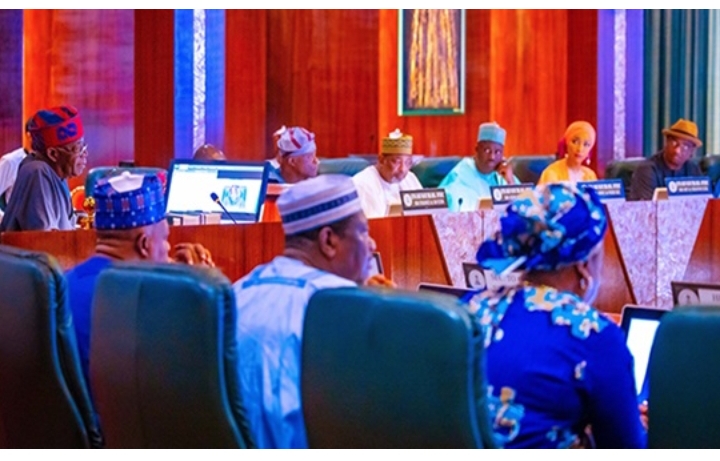
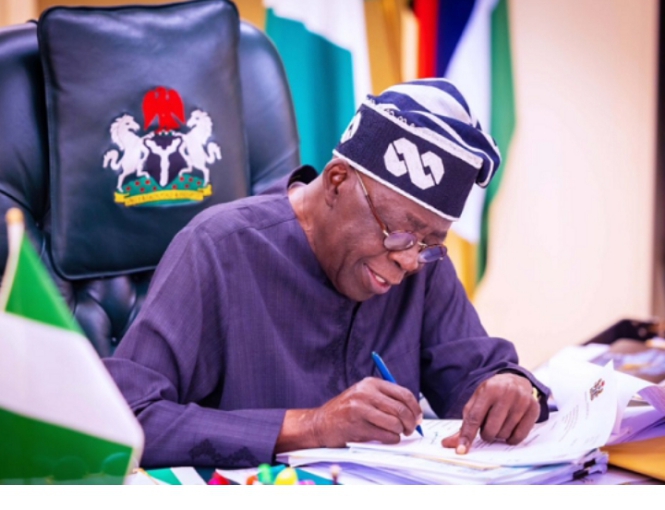 President Bola Tinubu has approved a new national policy aimed at curbing the migration of health workers.
President Bola Tinubu has approved a new national policy aimed at curbing the migration of health workers.
In a statement on X on Monday, the coordinating minister of health and social welfare, Prof. Muhammad Pate, announced that the policy is a comprehensive strategy designed to manage, harness, and reverse the trend of health worker migration.
The policy addresses the ongoing issue of Nigerian healthcare workers leaving the country for better opportunities, which has resulted in increased workloads and longer hours for those who remain.
The push factors, according to them, are inadequate equipment, worsening insecurity, poor working conditions, and poor salary structure
However, Pate said: “This afternoon, HE President Bola Ahmed Tinubu, GCFR @officialABAT, in-Council, approved a landmark policy set to transform healthcare human resource management in Nigeria.
“The National Policy on Health Workforce Migration addresses the critical challenges facing Nigeria’s health human resources. As the AU Champion for Human Resources for Health and Community Health Delivery Partnership, Mr President’s commitment to a resilient and robust healthcare system is powerfully reflected in this forward-looking policy.
“This policy is more than just a response to the ongoing exodus of healthcare professionals; it’s a comprehensive strategy to manage, harness, and reverse health worker migration. It envisions a thriving workforce that is well-supported, adequately rewarded, and optimally utilised to meet the healthcare needs of all Nigerians.”
The minister noted that central to this vision is the Nigeria Human Health Resource Programme, which sets a framework for regular reviews of working conditions, ensuring that health workers, especially in rural and underserved areas, receive the recognition and rewards they deserve.
“By fostering an environment conducive to professional growth and stability, the policy aims to retain top talent within Nigeria.
“In an increasingly digital world, integrating advanced health technologies is essential. The policy’s focus on digital health infrastructure—including Electronic Medical Records, telehealth, and a comprehensive Health Workforce Registry—marks a significant step towards a more efficient, data-driven health system. These innovations will streamline healthcare delivery and enhance the equitable distribution of health workers, ensuring access to quality care for all Nigerians.
“Capacity building is at the heart of this policy. It recognises the importance of continuous professional development, with strategic partnerships and opportunities for international training to equip our healthcare professionals with cutting-edge skills. This investment in human capital underscores our commitment to retaining and empowering our healthcare workforce,” he stated.
He added that the policy addresses the return and reintegration of Nigerian health professionals from the Diaspora.
He said by establishing streamlined registration processes and providing attractive incentives, the policy not only encourages the return of talented professionals but actively reintegrates them into the health system.
“This approach leverages the expertise of our diaspora to bridge gaps within the health sector. Also, the policy champions reciprocal agreements with other nations to ensure that the exchange of health workers benefits Nigeria. These bilateral and multilateral agreements are designed to protect national interests while respecting the rights and aspirations of our healthcare professionals. We call on recipient countries to implement a 1:1 match—training one worker to replace every publicly trained Nigerian worker they receive.
“Recognising the importance of work-life balance, the policy includes provisions for routine health checks, mental well-being support, and reasonable working hours, especially for younger doctors. These measures aim to create a supportive work environment, reducing burnout and enhancing job satisfaction.
“The governance of this policy will be overseen by the National Human Resources for Health Programme within @Fmohnigeria, in collaboration with state governments. This ensures responsible implementation and alignment with broader sector-wide health objectives.
“With this decisive action, the National Policy on Health Workforce Migration is set to secure the future of Nigeria’s healthcare system. Under Mr President’s leadership, this policy will further catalyse the transformation of our health sector, ensuring access to quality healthcare for all Nigerians. As we embark on this journey, all stakeholders are invited to contribute to building a healthcare system that reflects our nation’s potential and promise,” Pate noted.
news
NDDC Prepares for Agric Summit, Meets Stakeholders, Says MD

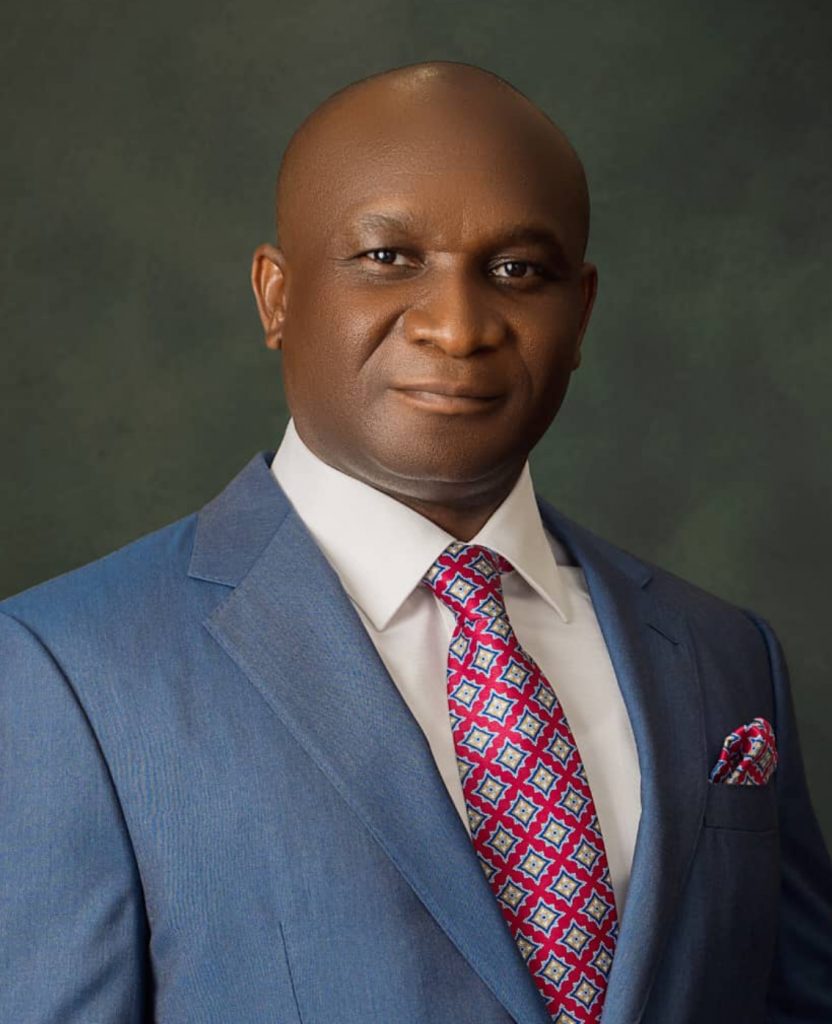 The Niger Delta Development Commission, NDDC, is hosting a two-day strategic meeting with commissioners, permanent secretaries, and directors of agriculture, fisheries & livestock in the nine Niger Delta states.
The Niger Delta Development Commission, NDDC, is hosting a two-day strategic meeting with commissioners, permanent secretaries, and directors of agriculture, fisheries & livestock in the nine Niger Delta states.
The meeting, which kicks off on Thursday in Port Harcourt, Rivers State, would be addressed by the NDDC Managing Director, Dr Samuel Ogbuku, who is expected to outline his plans for a retreat and agricultural summit for the Niger Delta region in line with President Bola Ahmed Tinubu administration’s agrarian programme.
An invitation extended to the stakeholders by the NDDC Director of Agric and Fisheries, Dr Winifred Madume, stated that the Commission was determined to make the Renewed Hope Agenda of the Federal Government a reality in the Niger Delta region by ensuring food security for the people.
Recall that the NDDC Chief Executive Officer had earlier assured that the Commission would align with the President’s vision for agriculture, to ensure that agriculture served as a platform for peace and security in the Niger Delta region.
Ogbuku promised: “Any time from now, the NDDC will convene a mini-agricultural retreat for state governments and commissioners of agriculture. States in the region have their various areas of strength in agriculture. We aim to establish regional agricultural integration, which will later evolve into a regional agricultural summit where a comprehensive master plan for the region’s agriculture will be developed.”
The Managing Director affirmed that the NDDC was engaging all stakeholders to ensure harmony and cooperation in developing the hitherto neglected Niger Delta region.
Reflecting on the Federal Government’s agricultural policies, Ogbuku stressed the need to bring them home to the Niger Delta region, noting that the NDDC would continue to promote policies and programmes that enhance food security and poverty reduction in the states .
news
Update : Tinubu approves 15% import duty on petrol, diesel, aimed to protect local refineries
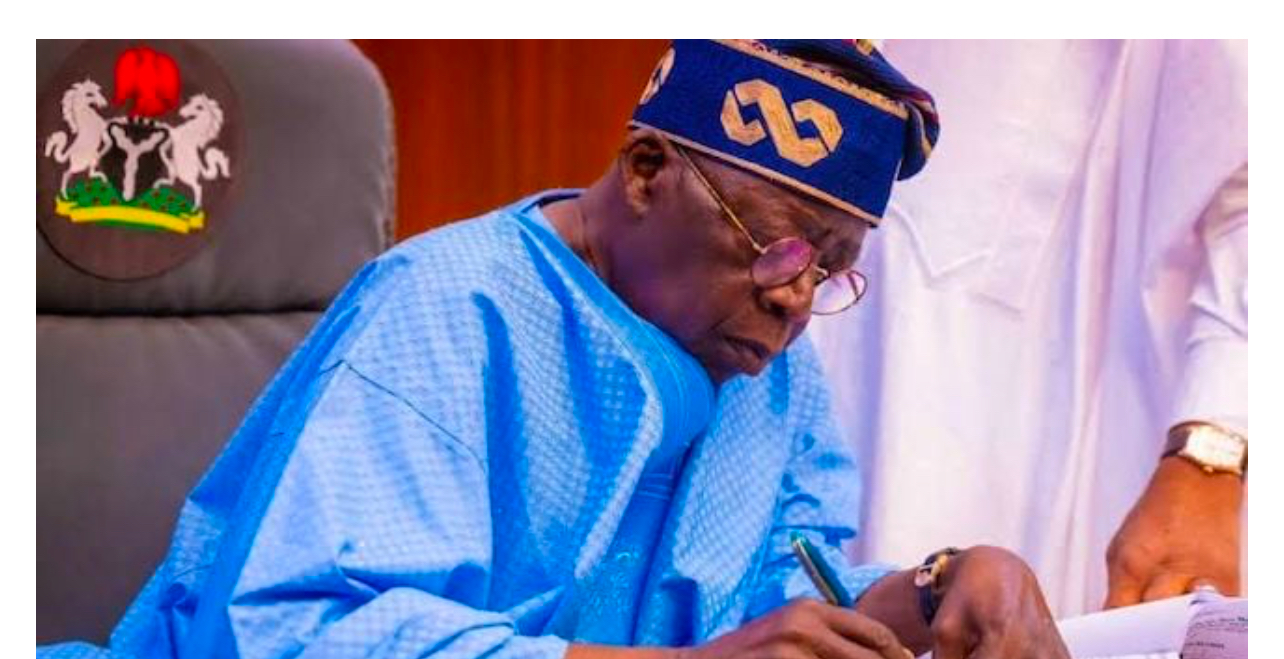
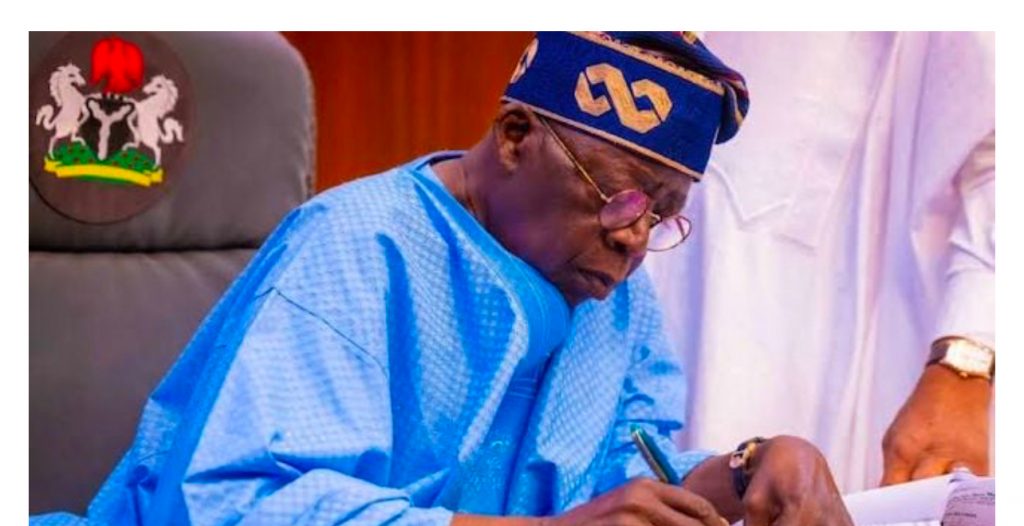
President Bola Tinubu has approved the introduction of a 15 per cent ad-valorem import duty on petrol and diesel imports into Nigeria.
The initiative is aimed at protecting local refineries and stabilising the downstream market, but it is likely to raise pump prices.
In a letter dated October 21, 2025, reported publicly on October 30, 2025, and addressed to the Federal Inland Revenue Service and the Nigerian Midstream and Downstream Petroleum Regulatory Authority, Tinubu directed immediate implementation of the tariff as part of what the government described as a “market-responsive import tariff framework.”
The letter, signed by his Private Secretary, Damilotun Aderemi, and obtained by our correspondent on Wednesday, conveyed the President’s approval following a proposal by the Executive Chairman of the FIRS, Zacch Adedeji.
The proposal sought the application of a 15 per cent duty on the cost, insurance and freight value of imported petrol and diesel to align import costs with domestic market realities.
Adedeji, in his memo to the President, explained that the measure was part of ongoing reforms to boost local refining, ensure price stability, and strengthen the naira-based oil economy in line with the administration’s Renewed Hope Agenda for energy security and fiscal sustainability.
“The core objective of this initiative is to operationalise crude transactions in local currency, strengthen local refining capacity, and ensure a stable, affordable supply of petroleum products across Nigeria,” Adedeji stated.
The FIRS boss also warned that the current misalignment between locally refined products and import parity pricing has created instability in the market.
“While domestic refining of petrol has begun to increase and diesel sufficiency has been achieved, price instability persists, partly due to the misalignment between local refiners and marketers,” he wrote.
He noted that import parity pricing- the benchmark for determining pump prices, often falls below cost recovery levels for local producers, particularly during foreign exchange and freight fluctuations, putting pressure on emerging domestic refineries.
Adedeji added that the government’s responsibility was now “twofold, to protect consumers and domestic producers from unfair pricing practices and collusion, while ensuring a level playing field for refiners to recover costs and attract investments.”
He argued that the new tariff framework would discourage duty-free fuel imports from undercutting domestic producers and foster a fair and competitive downstream environment.
According to projections contained in the letter, the 15 per cent import duty could increase the landing cost of petrol by an estimated N99.72 per litre.
“At current CIF levels, this represents an increment of approximately 99.72 per litre, which nudges imported landed costs toward local cost-recovery without choking supply or inflating consumer prices beyond sustainable thresholds. Even with this adjustment, estimated Lagos pump prices would remain in the range of N964.72 per litre ($0.62), still significantly below regional averages such as Senegal ($1.76 per litre), Cote d’Ivoire ($1.52 per litre), and Ghana ($1.37 per litre).”
The policy comes as Nigeria intensifies efforts to reduce dependence on imported petroleum products and ramp up domestic refining.
The 650,000 barrels-per-day Dangote Refinery in Lagos has commenced diesel and aviation fuel production, while modular refineries in Edo, Rivers and Imo states have started small-scale petrol refining.
However, despite these gains, petrol imports still account for up to 67 per cent of national demand.
news
JUST IN: Tinubu decorates Service Chiefs with new ranks


President Bola Ahmed Tinubu has decorated the new Service Chiefs with their new ranks in the military to suit their new positions.
The newly decorated handlers of the nation’s Armed Forces include Lieutenant General, now General Olufemi Olatubosun Oluyede, as Chief of Defence Staff; and Major General now Lieutenant General Emmanuel Undiendeye Undiendeye as Chief of Defence Intelligence (CDI).
Others are Major General, now Lieutenant General Waidi Shaibu as Chief of Army Staff (COAS); Air Vice Marshal, now Air Marshal Kevin Aneke as Chief of Air Staff;
Service chiefs pledge improved security, local arms production, technology use
Tinubu last Friday announced the replacement of the Service Chiefs, a move that has been attributed to the need to refocus and strengthen national security.
While commenting on his action, President Tinubu, in a post on his verified X handle, charged the new military chief helmsmen to “deepen professionalism, vigilance, and unity within our Armed Forces as they serve our nation with honour”.
Tinubu decorates Service Chiefs with new ranks
Tinubu decorates Service Chiefs
President Bola Ahmed Tinubu has decorated the new Service Chiefs with their new ranks in the military to suit their new positions.
The newly decorated handlers of the nation’s Armed Forces include Lieutenant General, now General Olufemi Olatubosun Oluyede, as Chief of Defence Staff; and Major General now Lieutenant General Emmanuel Undiendeye Undiendeye as Chief of Defence Intelligence (CDI).
Others are Major General, now Lieutenant General Waidi Shaibu as Chief of Army Staff (COAS); Air Vice Marshal, now Air Marshal Kevin Aneke as Chief of Air Staff;
Service chiefs pledge improved security, local arms production, technology use
Tinubu last Friday announced the replacement of the Service Chiefs, a move that has been attributed to the need to refocus and strengthen national security.
While commenting on his action, President Tinubu, in a post on his verified X handle, charged the new military chief helmsmen to “deepen professionalism, vigilance, and unity within our Armed Forces as they serve our nation with honour”.
-

 news5 years ago
news5 years agoUPDATE: #ENDSARS: CCTV footage of Lekki shootings intact – Says Sanwo – Olu
-

 lifestyle5 years ago
lifestyle5 years agoFormer Miss World: Mixed reactions trail Agbani Darego’s looks
-

 health5 years ago
health5 years agoChairman Agege LG, Ganiyu Egunjobi Receives Covid-19 Vaccines
-

 lifestyle4 years ago
lifestyle4 years agoObateru: Celebrating a Quintessential PR Man at 60
-

 health5 years ago
health5 years agoUPDATE : Nigeria Records 790 new cases of COVID-19
-

 health5 years ago
health5 years agoBREAKING: Nigeria confirms 663 new cases of COVID-19
-

 entertainment9 months ago
entertainment9 months agoAshny Set for Valentine Special and new Album ‘ Femme Fatale’
-

 news6 months ago
news6 months agoBREAKING: Tinubu swears in new NNPCL Board


